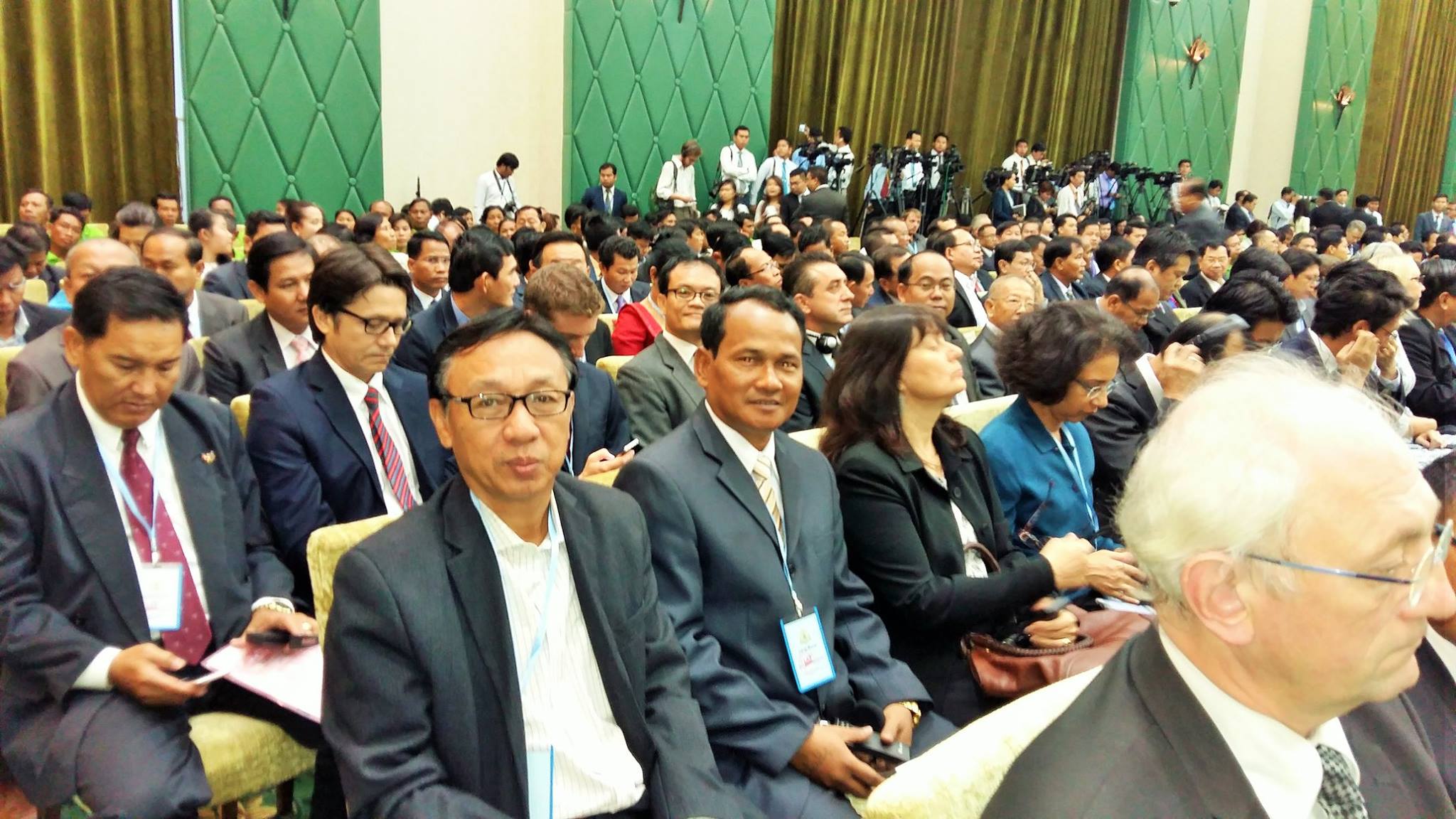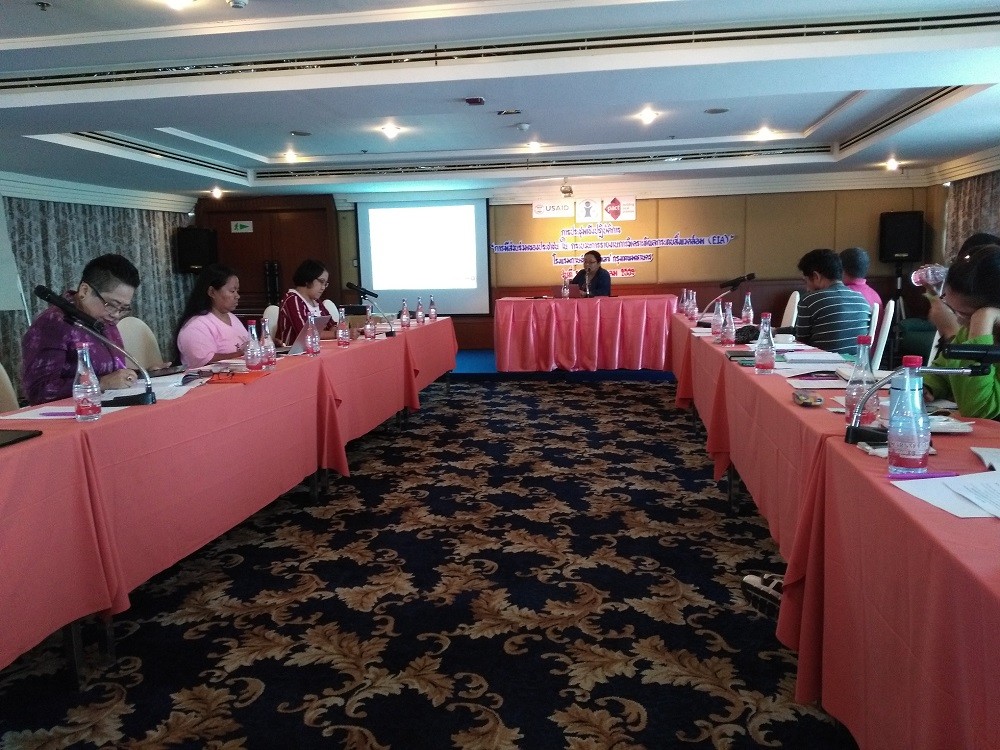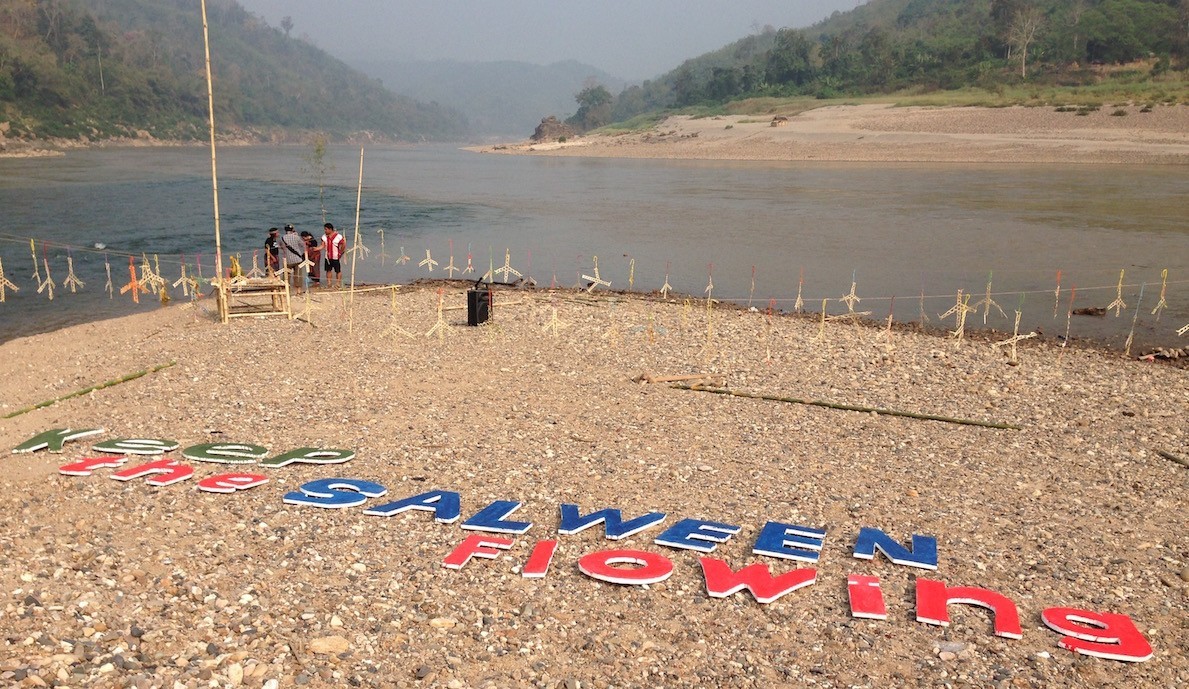Two key civil society organization (CSO) partners of USAID-supported Mekong Partnership for the Environment (MPE), recently met the Cambodian Prime Minister and were able to earn his support for more formal mechanisms for dialogue between civil society and government.
Following an MPE workshop on CSO leadership, Executive Director of Development and Partnership in Action Mr. Mam Sambath, along with another Cambodian MPE partner Mr. Tek Vannara, Executive Director of NGO Forum on Cambodia (NGOF), attended the Forum on the Protection and Conservation of Natural Resources and met with Cambodian Prime Minister Hun Sen. The August 22 forum in Phnom Penh aimed to promote collaboration between government of Cambodia, development partners, CSOs, and local communities in natural resources, biodiversity and ecosystem conservation, and environmental protection in Cambodia.
“The PM’s summary and responses covered most of the 16 written key requests from us – NGOF and its member organizations, including DPA,” said Mr. Sambath. “And importantly, the PM agreed with our suggestion in relation to the mechanism for having the Annual Forum on Environment between CSO representatives and the PM.”
Mr. Sambath had just attended an MPE workshop, “Leading Change: CSO Leaders’ Workshop on Effective Policy Engagement” and credited it for helping him with the meeting: “I found this training to be very useful because I was able to use the knowledge from this training to prepare for the meeting with the PM.”
Importantly, the PM agreed with their suggestion for a mechanism for having an Annual Forum on Environment between CSO representatives and the PM. Additionally, the PM suggested to have a quarterly meeting on the specific emerging issues in relation to the environment between CSO representatives and the other six government line ministries, including Ministries of Environment, Mines and Energy, Land, and others.

Cambodia PM Hun Sen speaks at the Forum on the Protection and Conservation of Natural Resources in Phnom Penh, Cambodia, Credit: Heng Chivoan, Phnom Penh Post
MPE has been supporting DPA to work with governments and business, especially on issues related to improving community participation in the extractives industry in Cambodia. MPE also works closely with NGOF on helping communities to participate and engage in development decision-making processes.
To support CSOs partners in developing their capacities to engage and influence such policy dialogues more effectively, MPE organized the August 25-26, 2016 CSO Leaders workshop in Bangkok, Thailand. The event aimed to strengthen CSO leaders’ capacities to be able to deliver, communicate, and negotiate information to decision-makers, and enhance skills to effectively facilitate policy dialogues.
Twenty CSO representatives from the Mekong Region explored various examples of successful engagement with national government agencies and regional bodies regarding policy development and how to better engage in high-level policy dialogues. The workshop allowed the participants to learn and analyze real policy engagement experiences, obtain skills on communicating key messages and negotiating with decision-makers and the opportunity to exchange experiences from different countries.
Participants said they found the workshop practical and useful, and many said they plan to use the knowledge gained from the workshop to strategically engage in policy dialogues.
“I thought it was difficult to access to decision makers. However, after the training, I can see the ways to access to them, and that it is necessary to engage them,” said Saphet Sivilay of Lao PDR’s Village Focus International (VFI). “I can use the skills and knowledge to identify stakeholders, not only for (the MPE-supported) National Consultation Workshop on the EIA guidelines, but for other issues too.”
CSOs and their leaders are increasingly seen as pivotal actors in contributing to policy development and in holding governments and businesses to account. And with infrastructure projects such as dams, economic zones and power plants on the rise, it’s never been more important for CSOs to have an effective role.
Group discussion at the CSO Leaders’ Workshop on Effective Policy Engagement in Bangkok, Thailand Credit: MPE
For CSO leaders to be able to effectively influence development policies and decisions, they need to be seen as credible and legitimate sources of information, as decision-makers require reliable and robust data that can be taken into consideration as evidence for policy recommendations. They also need to be able to present and communicate information and their key messages clearly as well as negotiate with decision-makers.
MPE offers various opportunities to build CSOs’ capacities to participate in various platforms for dialogues. It is hoped that through these processes, the CSO leaders will be able to help strengthen public participation in Environmental Impact Assessment and other policies and practices to improve sustainable development in the Mekong Region.
Lead Photo: DPA’s Mr. Mam Sambath (middle at front) and other civil society leaders meet with Cambodian Prime Minister. Credit: NGO Forum on Cambodia
This is an outreach announcement from the USAID-funded Mekong Partnership for the Environment (MPE), a key supporter of The Mekong Eye.






